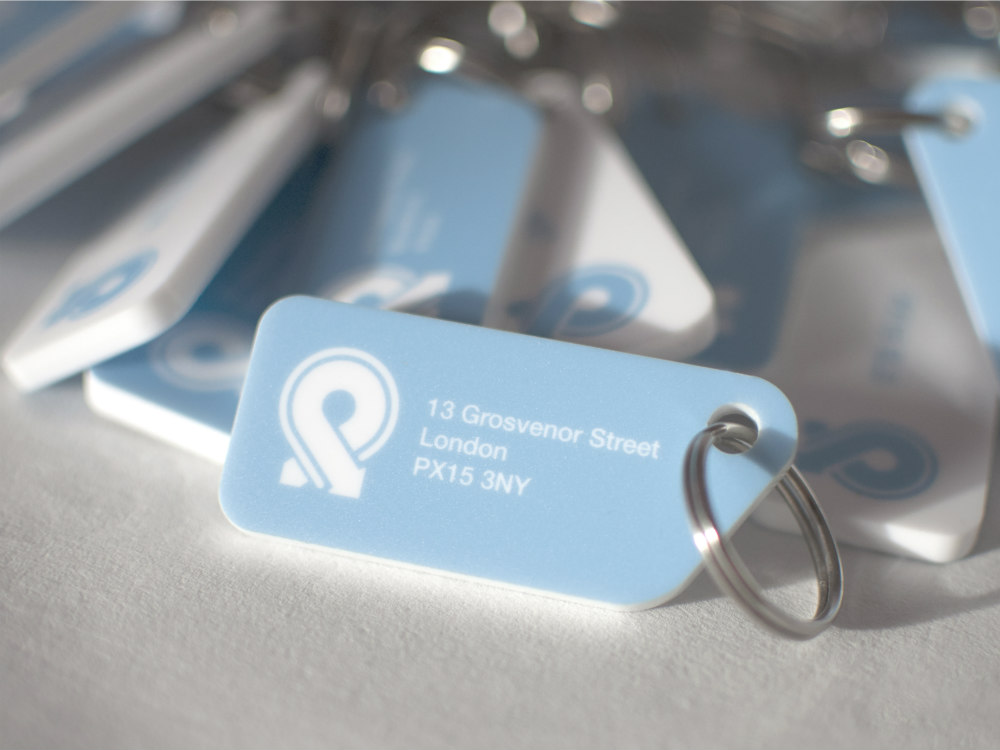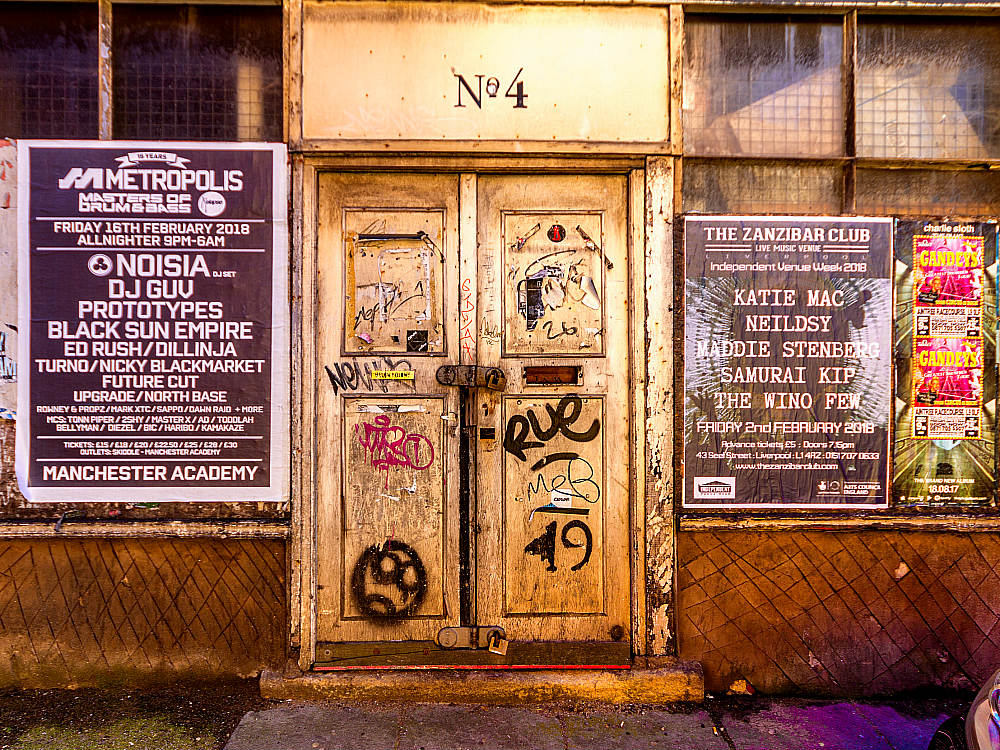Your address and your house are different things. In other words, despite our tendency to have a personal attachment to our own addresses, when you buy a house you don’t buy the address, at least in the UK. But what is an address anyway? It’s just a code invented to describe the location of the house; an original idea turned nowadays rather into a person’s identity. Chris Hildrey, an architect from Liverpool with a studio in London, has singled out this misconception aimed at addressing homelessness in cities.
He has created a database system called ProxyAddress, which matches homeless people with addresses of UK’s empty properties. By doing this the city council can provide proxy addresses to those faced with homelessness to avoid being stigmatized from the moment they lose an address. It prevents them from slipping into a vicious circle and prevents homelessness from escalating.
Chris Hildrey has managed to humanize an old established address system by navigating through processes, policies and financial regulations and understanding how everything is interconnected. He has brought together councils, the government, banks, address providers (like housing associations, or real estate companies) and postal service providers. He has left no stone unturned.
Addresses were originally invented to categorise the city. But, by using this information to identify people rather than locations, the system invented to help has started to marginalise those who aren’t lucky enough to have a stable home.
It was a big challenge to draw all the partners together. However, they were willing to listen to a possible solution to tackle homelessness without spending additional resources as funding has been cut by 40% in 2010. Under recent legislation, councils must help all those who face homelessness. But it’s hard to help with even less funding and homes still unavailable.
‘ProxyAddress is a disruptive idea, but actually it is aggressively in compliance with the system’ points out Hildrey. ‘It is my job as a designer to understand the constraints of others. And try to make it work by going around existing systems without spending money. There is no point to advocate a change in our capitalist housing system to make housing affordable. It will take long – time that people don’t have’.
The number of people sleeping rough in the UK has risen by 165%
According to the latest report by the UK Government, homelessness in the UK has increased dramatically since 2010. It has become such a big problem in the UK that there is an urgent call to action at addressing homelessness in cities.
This project is about a duty that everybody has to support one another; between the physical world and the digital world and the tensions between those; between the built environment and the people who use it, between static and dynamic systems.
Recently, hundreds spent the night in sleeping bags outside at public spaces in the World’s Big Sleep Out, drawing attention to homelessness in many cities like New York and London. The event was organized by Josh Littlejohn, the owner of a chain of the Scottish sandwich Social Bite, a social business driven by the cause of addressing homelessness in cities, rather than profit.
Chris spent over a year speaking to homeless people. They shared their experiences with him and he was able to put faces to the problem beyond statistics. ‘I suddenly realized that some people just don’t have that back up in life like family when things turn bad’.
It is always difficult to estimate numbers of people without homes, especially because of the ‘hidden homeless’. These are people sleeping from one couch to another at people’s houses and being on the edge of the cliff.
Chris realized that by giving homeless people a proxy address at an early stage, it helps avoid entrenchment and get them back on their feet. ‘The longer you stay homeless, the bigger the problem gets. If you know it is going to happen, a proxy address can be a big help. It is a key to services’.

Whether moving frequently, if a homeless person has a permanent single address, he or she can apply for a job, open a bank account, go to libraries, get state benefits, access services, etc. Having an address removes stigma and people can reach you without knowing if somebody is using a proxy address.
ProxyAddress has been designed so that both of these remain unaffected for the original property and the people who own it
ProxyAddress doesn’t use addresses without the consent of empty property owners. And the use of the property’s address for ProxyAddress has no affect on the original property, its owners, or its property value. There are two ways in which you might think it would: post and financial records/credit scores.
Regarding the post, ProxyAddress uses existing systems of postal redirection to redirect any post addressed to the homeless person at his/her ProxyAddress to a place where the person is staying short term or a collection point of his/her choosing. After a place of collection like a homeless shelter has been chosen online by the person, that post sent to the ProxyAddress user is always redirected before it reaches the property.

Regarding Credit scores, since 2006, amendments to the Consumer Credit Act 1974 mean that credit ratings are not determined by address unless individuals are financially linked – for example, by sharing a mortgage or a joint bank account.
Chris spent a lot of time navigating through financial regulations and talking to banks to work together. For instance, banks are some of the exceptions when partners of ProxyAddress need to know that a proxy address is used by opening a bank account, where strict measures need to be in place to protect against fraud. This is as much for a homeless person’s safety as theirs. They want to make sure that having a proxy address doesn’t open you up to exploitation by those looking to launder money through new bank accounts.
ProxyAddress is only available in London
At present, they want to make sure that everything works well in real life before rolling the service out nationally in 2020.
It is amazing how much Chris Hildrey knows about address systems in cities, and even worldwide. He has become an expert to the point of realising what the importance of an address really is, in fact not that much. The best well-known example is the Japanese address system. It is based on geographic entities and areas, rather than on a building’s location on a specific street. Or Prague in the Czech Republic where they use double street addresses.

But it is difficult to make stakeholders jump over this misconception of an address as a person’s identity. The city of London is a pioneer in testing this change in mentality. However, Chris would like to see more from a policy point of view. The council should have the right to use an address of an empty property to tackle homelessness in the city.
I never considered myself purely an architect but rather in a broader sense. You have a position in society to make things happen. Problems don’t grow according to professional educations and silos. To find solutions we can’t respect these boundaries either.
Most people see the city as a static thing. However, architects, urban planers and any others working for cities are actually trained to see the changes and intervene. Systems are put in place by people but sometimes they are just there waiting to be changed.






